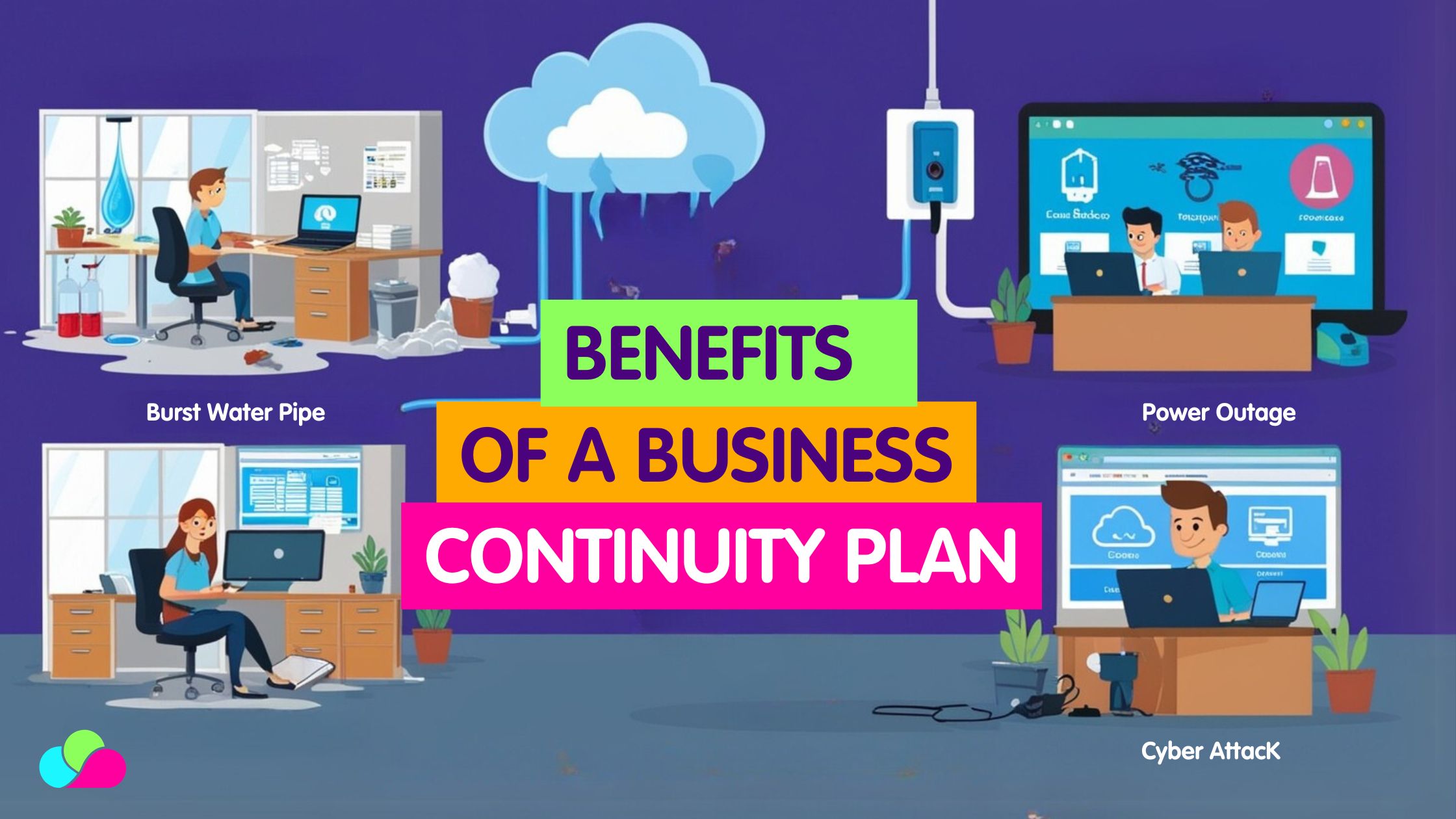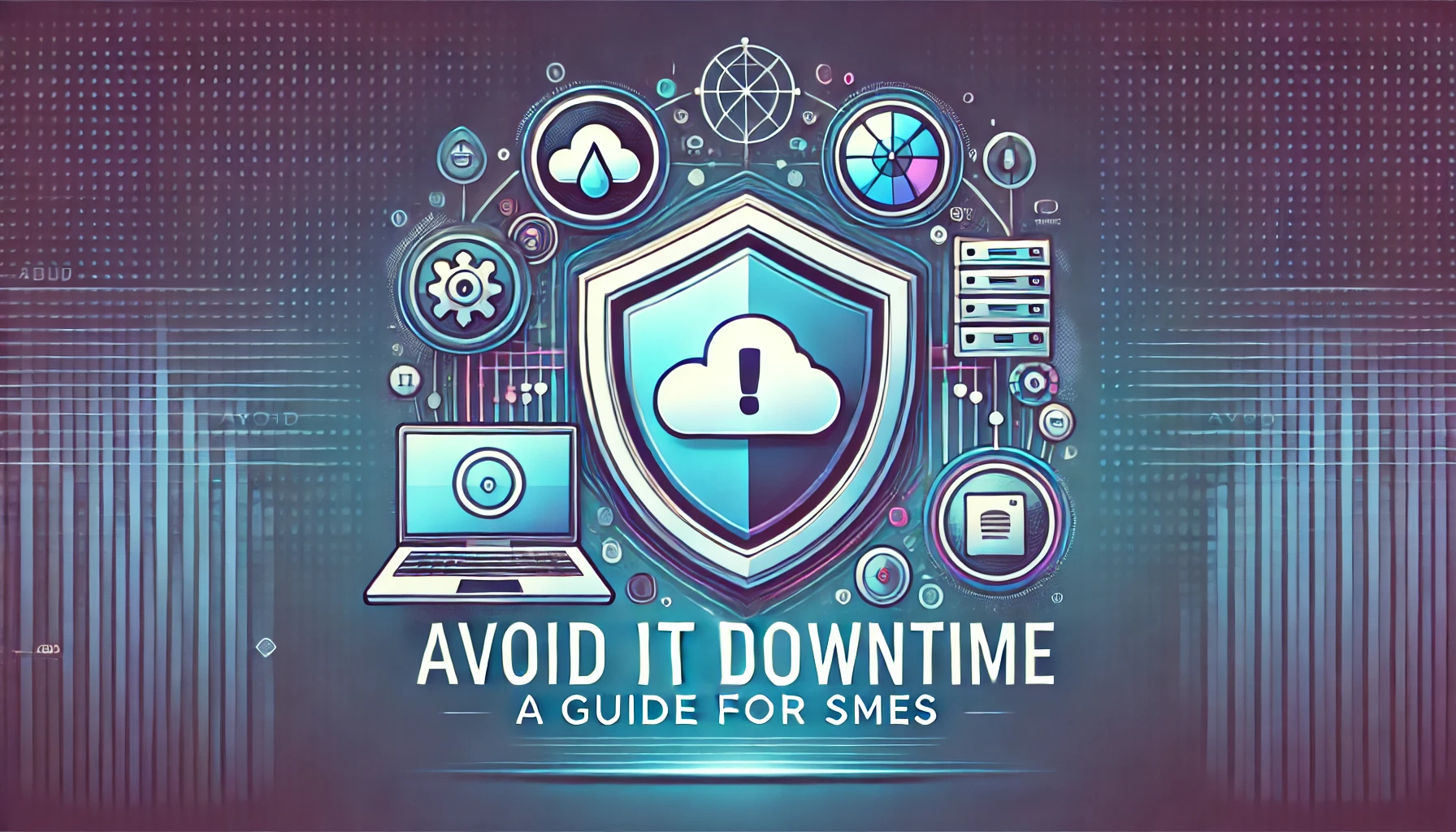Tired of tech headaches?
Cloud computing and managed services might be your business’s new best mates.
Let’s be honest. Managing IT in-house can feel like trying to change a car tyre while it’s still moving. Between juggling software updates, cyber security worries, and “Why is the printer doing that again?”, it’s easy to see why businesses are turning to cloud computing and managed services.
But what does that actually mean? And more importantly, why should you care?
Let’s break it down in plain English (no buzzwords, promise).
What is cloud computing, really?
Think of cloud computing like renting a fully kitted-out office, but online. You don’t have to build it yourself, maintain the infrastructure, or panic when something breaks. You just log in and get on with your day.
Instead of storing data and software on your own computers or servers, everything lives in the cloud (basically someone else’s super-secure server), and you access it via the internet. Whether it’s emails, files, apps, or data backups, cloud computing lets you work from anywhere, anytime.
✅ No server room
✅ No overheating hardware
✅ No drama
This flexibility plays a key role in business continuity too. When your team can access everything from anywhere, you’re not tied to a single location or reliant on that one old server humming under the stairs.
What are managed services?
Managed services are what happens when you hand over the day-to-day running of your IT to someone who actually enjoys doing it.
Rather than waiting for something to break and then calling for help, you get ongoing IT support, monitoring, maintenance, and cyber security. All proactive. It’s like having your own IT department without needing to clear space in the office or hire anyone.
Managed services are also essential for businesses that want peace of mind when it comes to disaster recovery and continuity planning. Your systems, backups, and security are always being looked after—so you’re not left scrambling if something unexpected happens.
Why do cloud computing and managed services go so well together?
Because they’re better together. Like biscuits and tea. Here’s why:
Better business continuity
If your laptop dies or your office floods, (we have had a few of those), your data is still safe, backed up, and accessible in the cloud. This kind of setup is the backbone of strong business continuity and disaster recovery planning. Managed services ensure everything keeps running smoothly, and if something does go wrong, they’re already on it, so your team can keep working without missing a beat.
Stronger cyber security
Between phishing scams and dodgy Wi-Fi connections, security’s a big deal. A managed service provider keeps your cloud setup secure, your staff trained, and your data safe.
More flexibility and scalability
Need to add a new user? Want to set up Microsoft 365 for someone new? Want to start using Teams properly? Cloud services let you scale up or down without hassle. Your managed IT team sorts it all for you.
Predictable costs
Cloud computing often works on a pay-as-you-go basis. Managed services are usually a fixed monthly fee. That means no surprise bills or scary “server meltdown” invoices. Even better, you can plan for the long term without worrying about surprise costs knocking your budget off course. It’s all part of building a reliable, future-ready IT setup that supports your business continuity goals.
Less stress all round
No more “Can someone fix the internet?” shouts across the office. No more wondering if your data backups are actually working. Just quiet confidence that your tech is sorted.
We look after everything behind the scenes, so your team can get on with what they do best.
Is it just for big businesses?
Absolutely not. In fact, small and medium-sized businesses (just like yours) are often the ones who benefit most.
You don’t need a huge budget or a team of in-house IT experts. You just need the right support.
We work with businesses who simply want IT that works, keeps them secure, and helps them grow. Whether you’re in finance, legal, marketing, or the world of spreadsheets and sticky notes, we tailor your setup to what you actually need.
Let’s make your IT the least stressful part of your business
If you’re ready for tech that works with you, not against you, let’s chat. We’ll show you how cloud computing and managed services can save you time, tighten your security, and take the hassle out of IT.
No pressure. No jargon. Just a helpful conversation.
FAQs
What’s the difference between cloud services and managed services?
Cloud services provide the tools, like Microsoft 365 or file storage. Managed services manage those tools for you, keeping everything secure, up to date, and working as it should.
Is my business too small for managed services?
Not at all. Many of our clients are small businesses who need great IT support without hiring a full-time team. We scale to suit your size.
Is cloud computing secure?
Yes, but only if it’s set up properly. That’s where managed services come in. We configure your cloud environment securely and keep it protected with regular monitoring and updates.
Can I keep using my current software with cloud computing?
Usually, yes. We’ll work with you to see what can move to the cloud and how to make the transition smooth. No interruptions. No downtime.
Do I need to move everything to the cloud at once?
Nope. You can start small, maybe just your emails or backups, and build from there. We’ll help you find the right pace for your business.
How does this help with business continuity and disaster recovery?
By storing your data securely in the cloud and maintaining regular backups, we help you keep things running—even when something goes wrong. With managed services keeping everything monitored and maintained, you’re better prepared for the unexpected.
Let’s make your IT the least stressful part of your business
If you’re ready for tech that works with you, not against you, let’s chat. We’ll show you how cloud computing and managed services can save you time, tighten your security, and take the hassle out of IT.
No pressure. No jargon. Just a helpful conversation.









